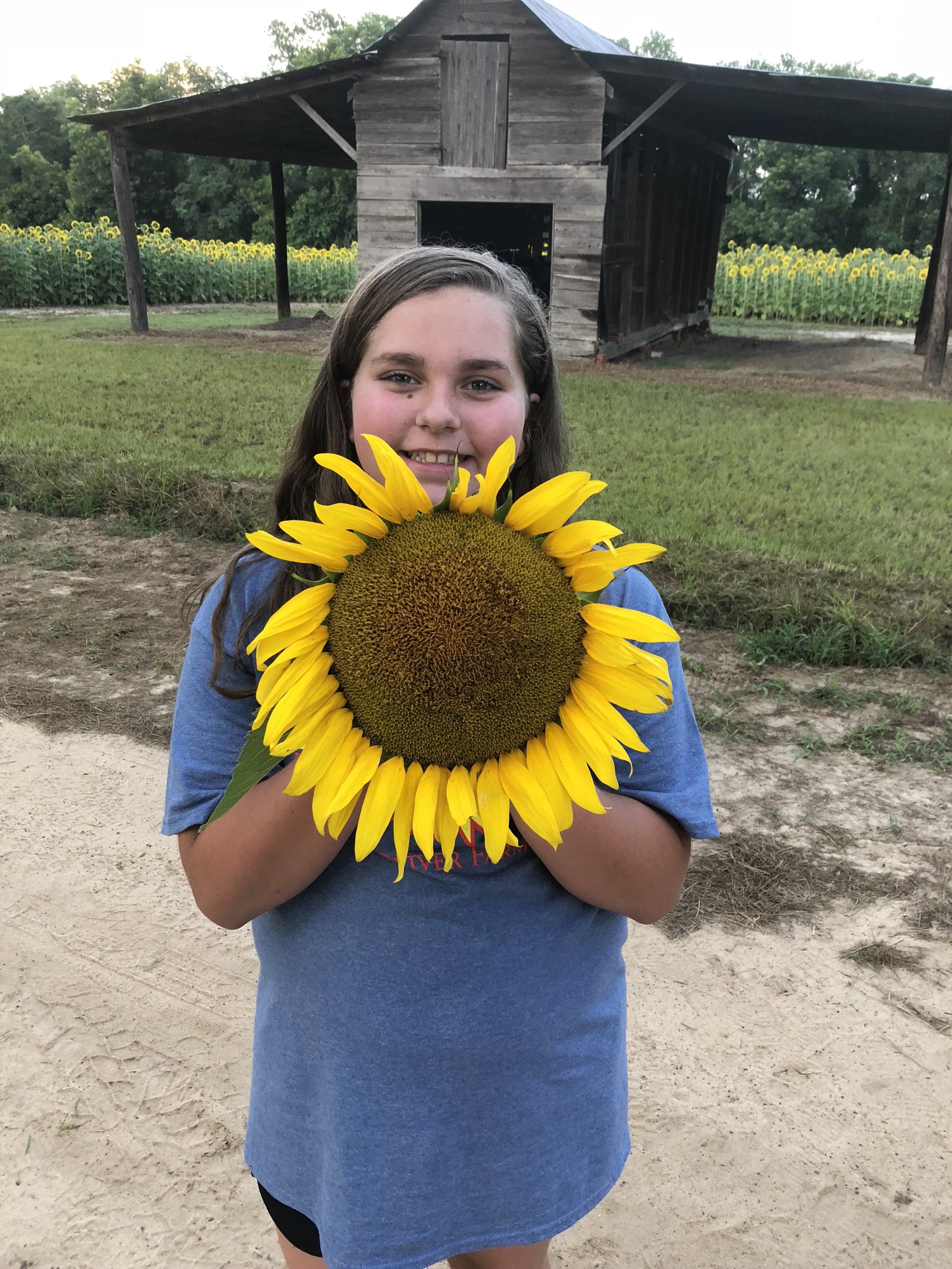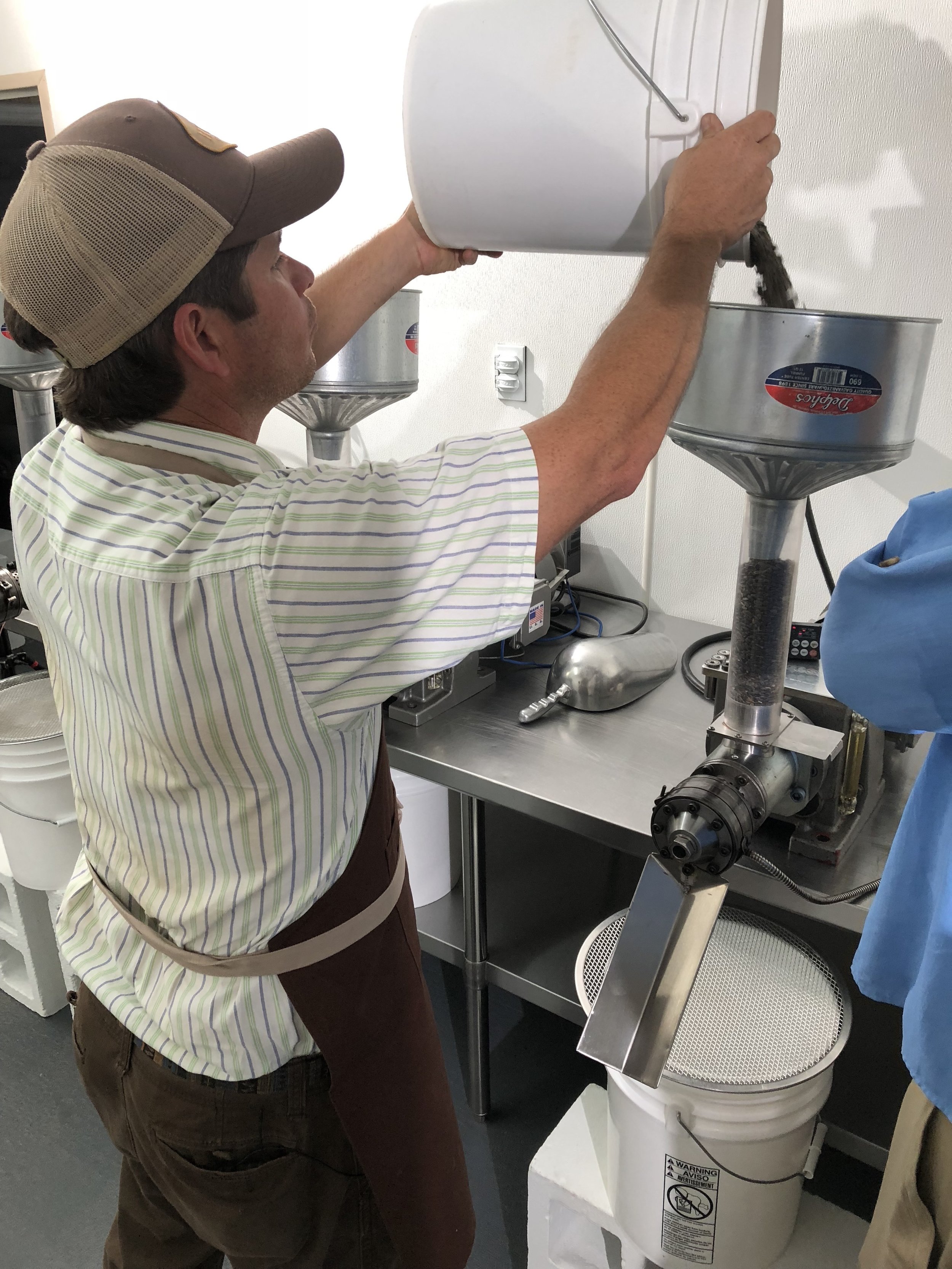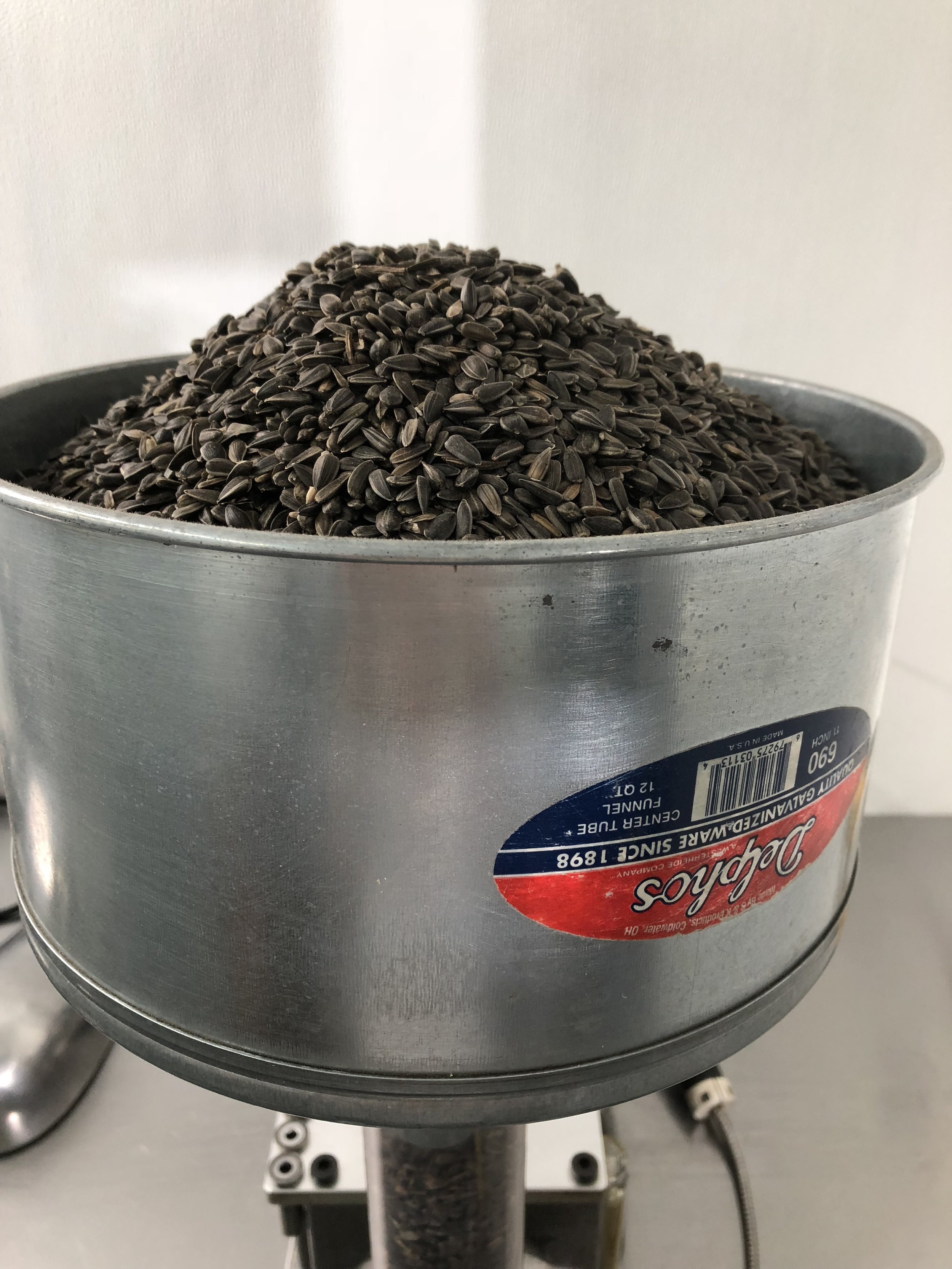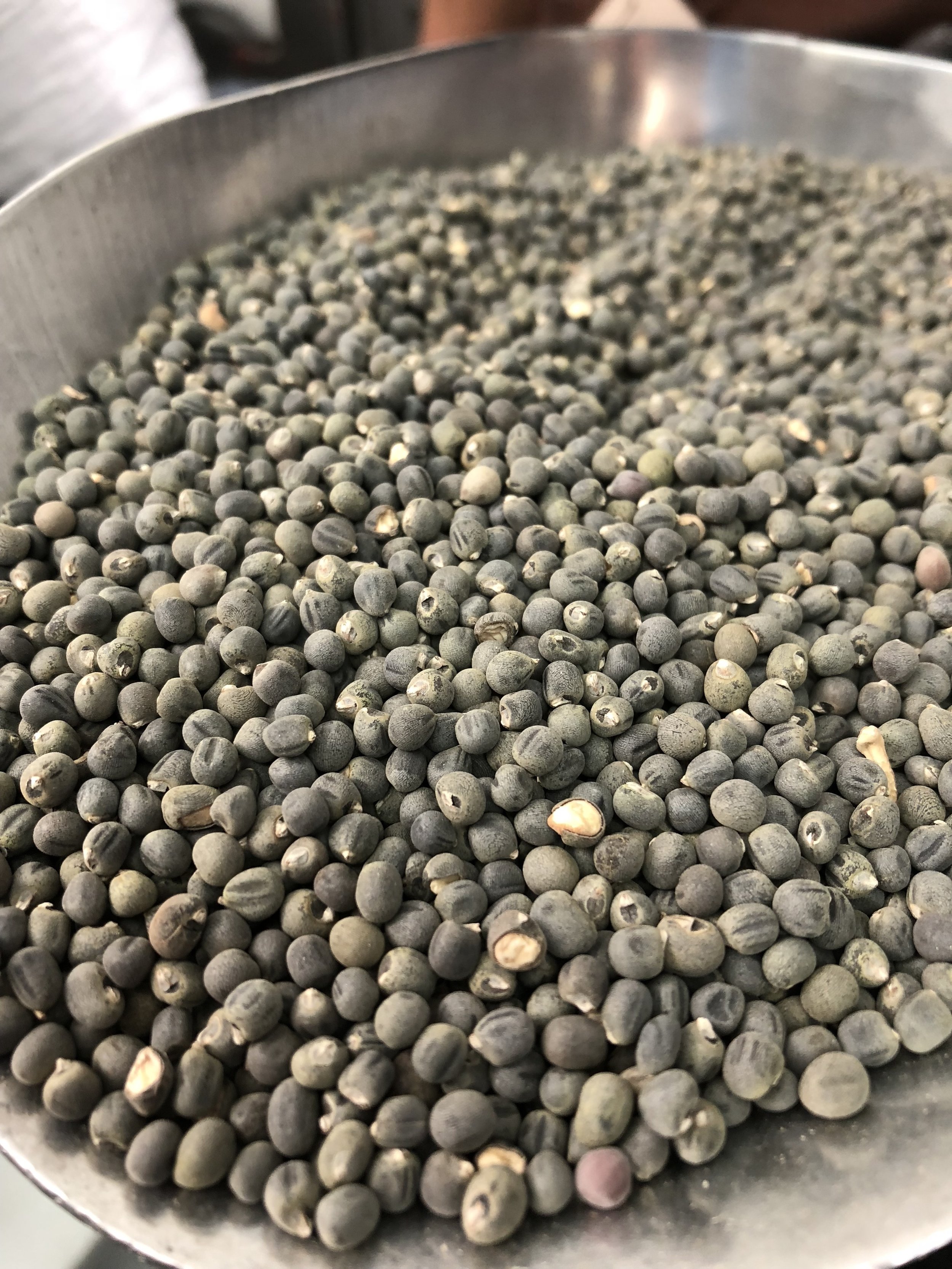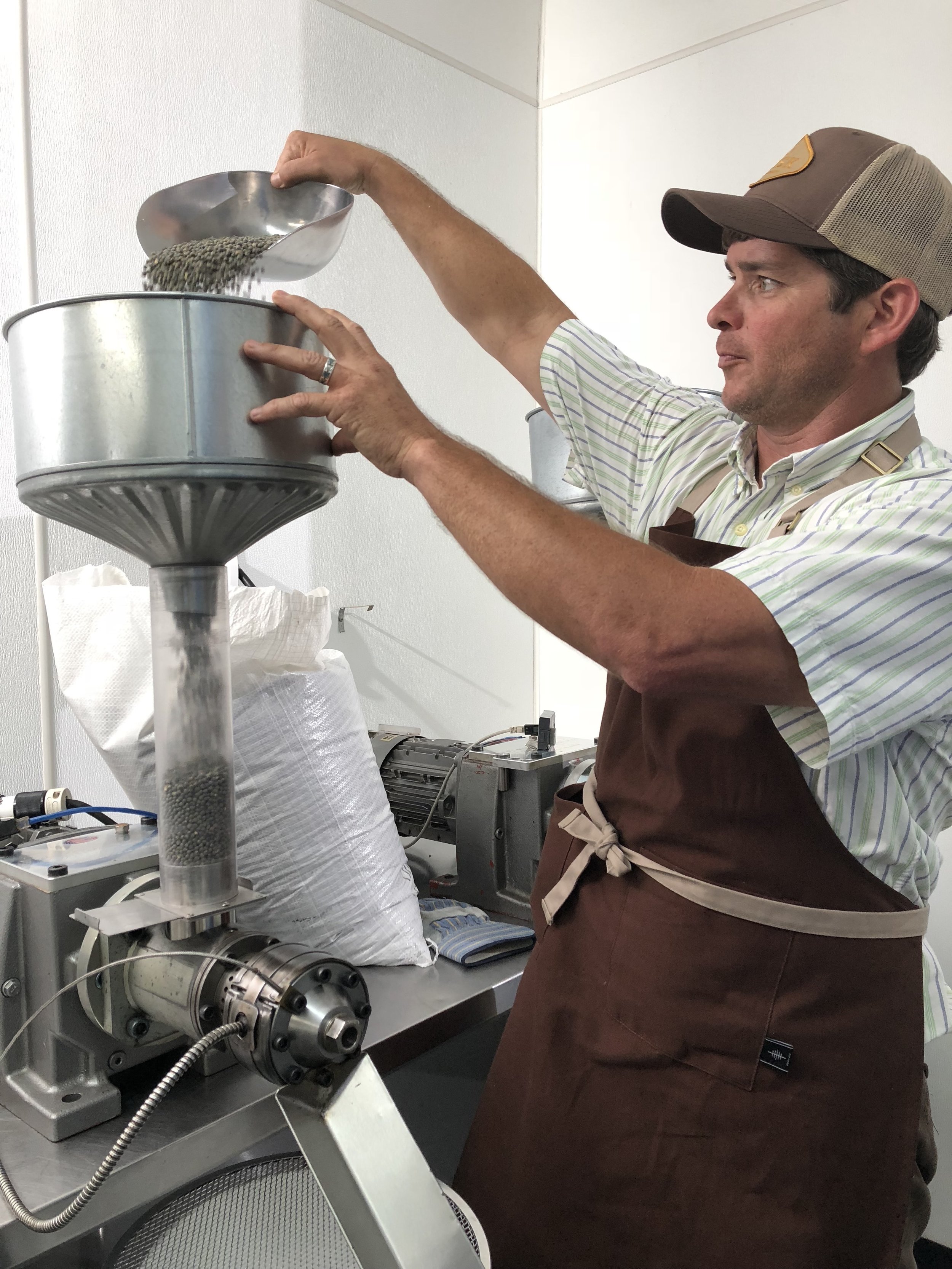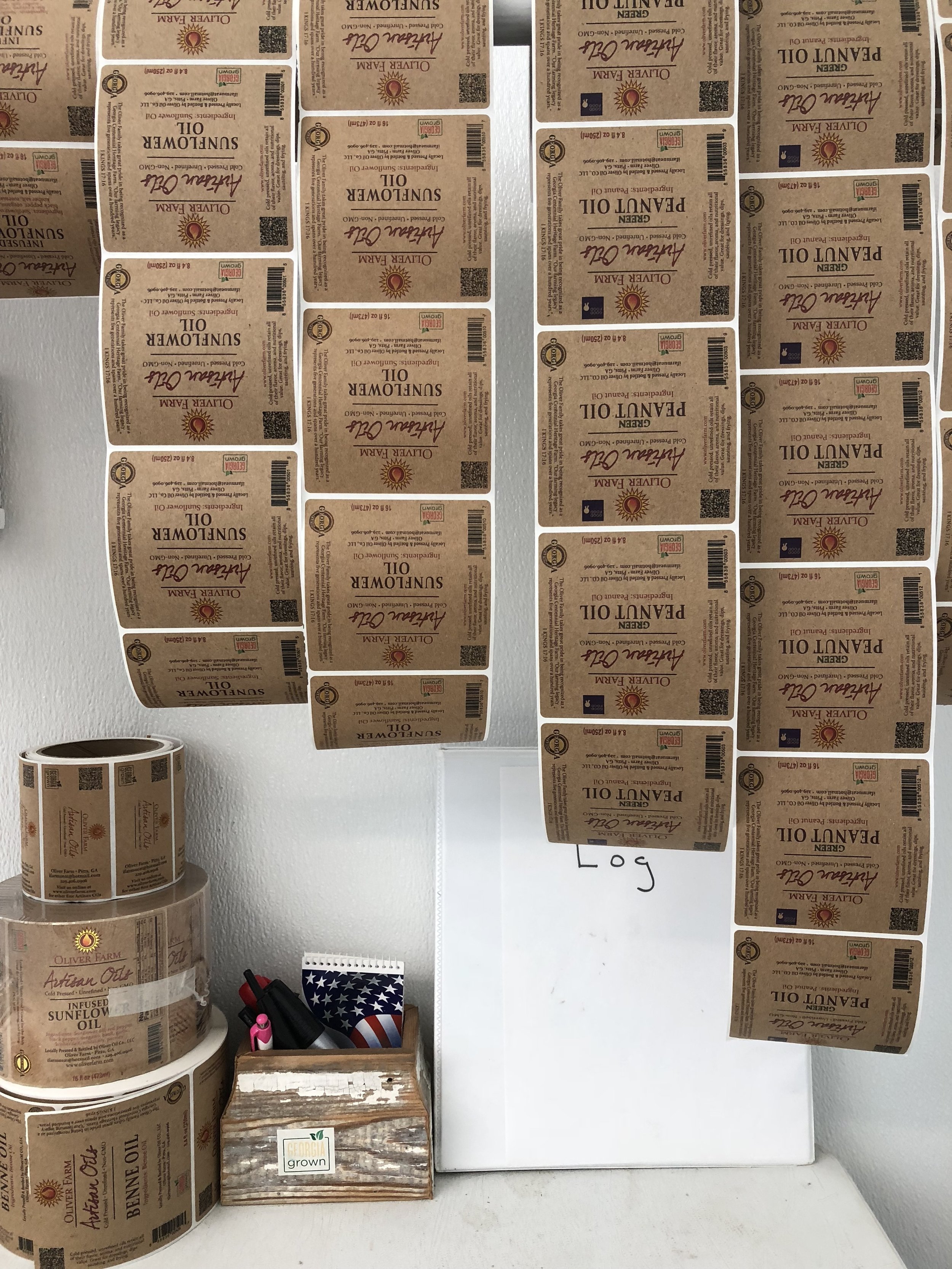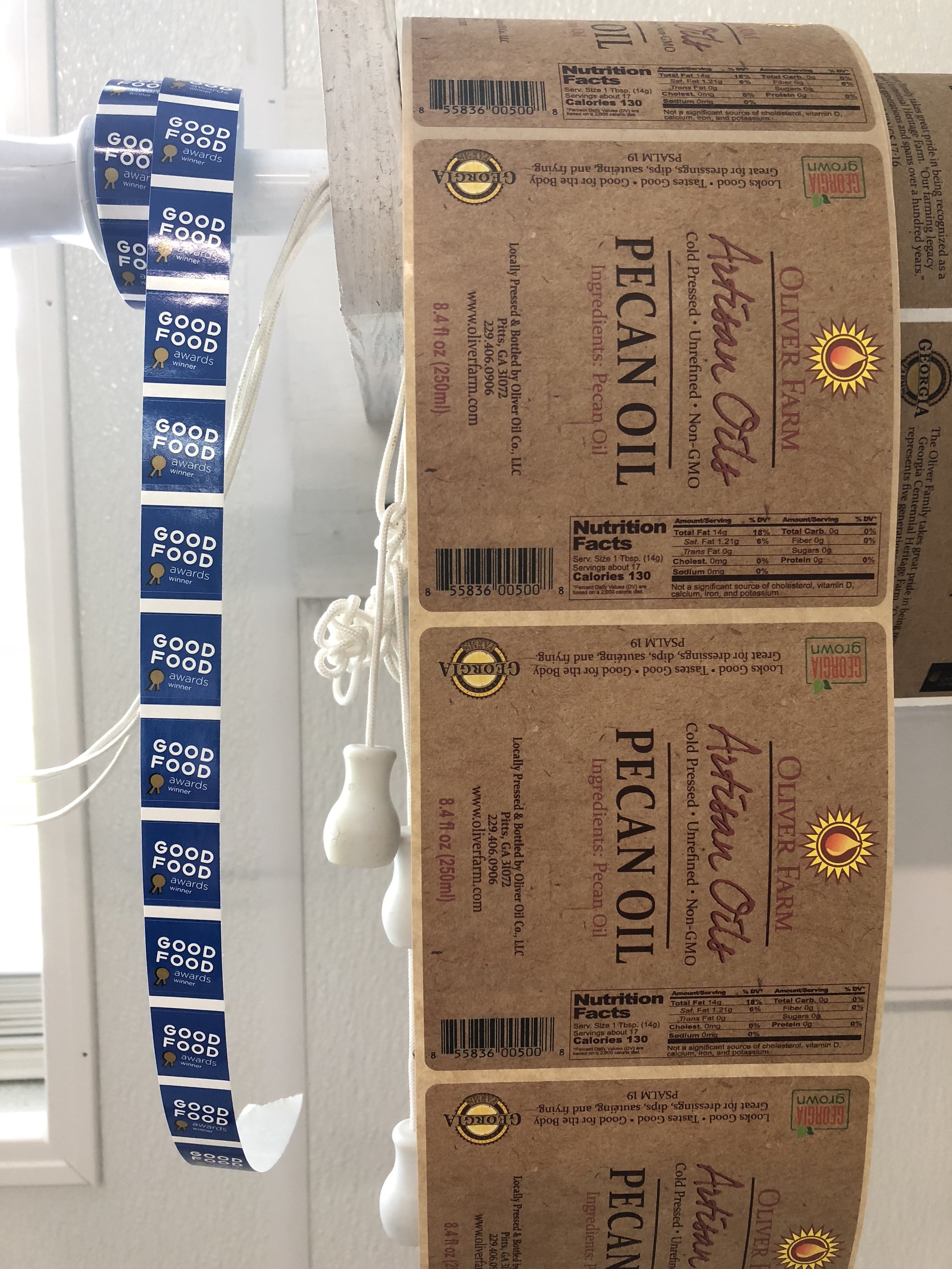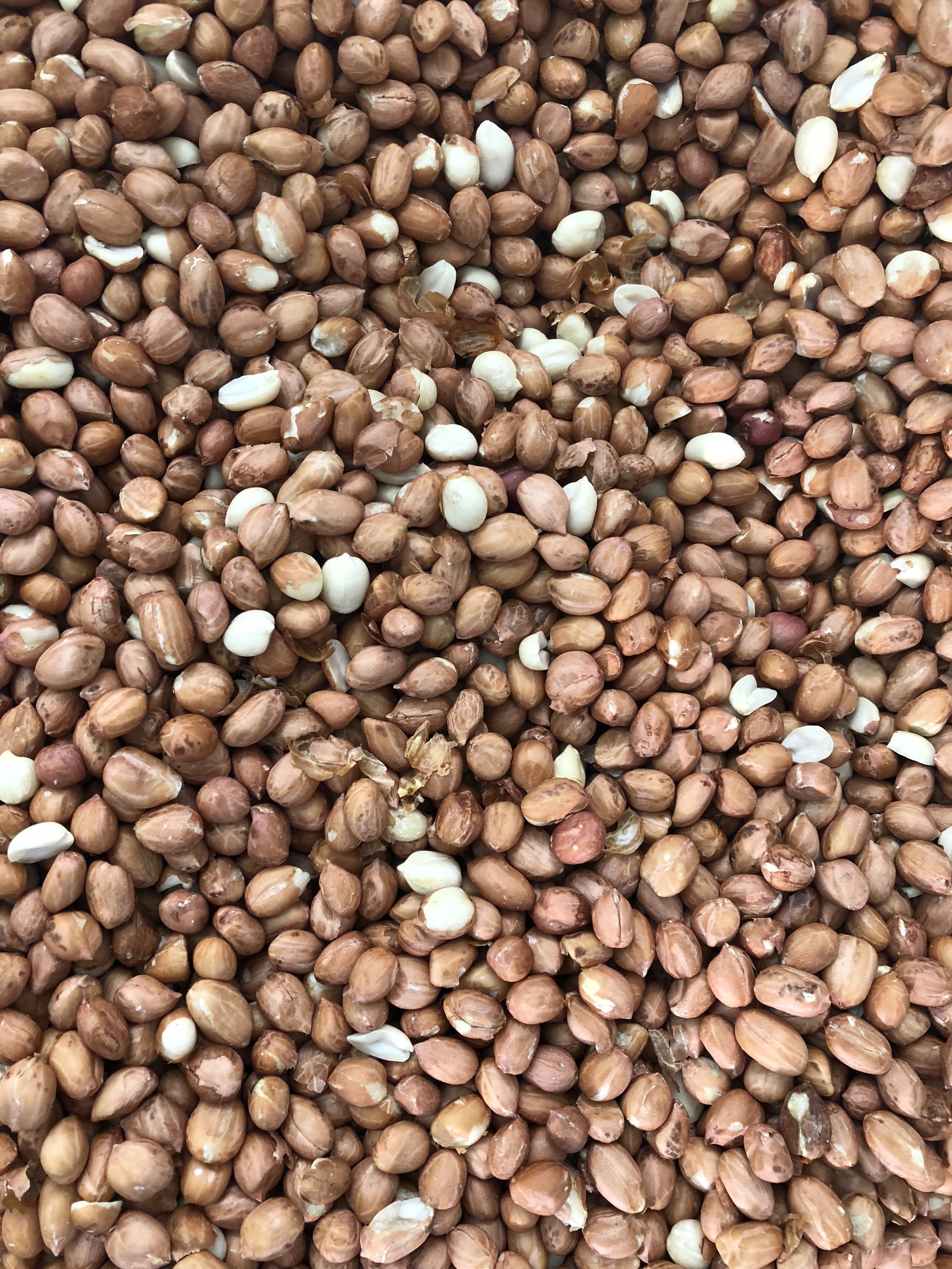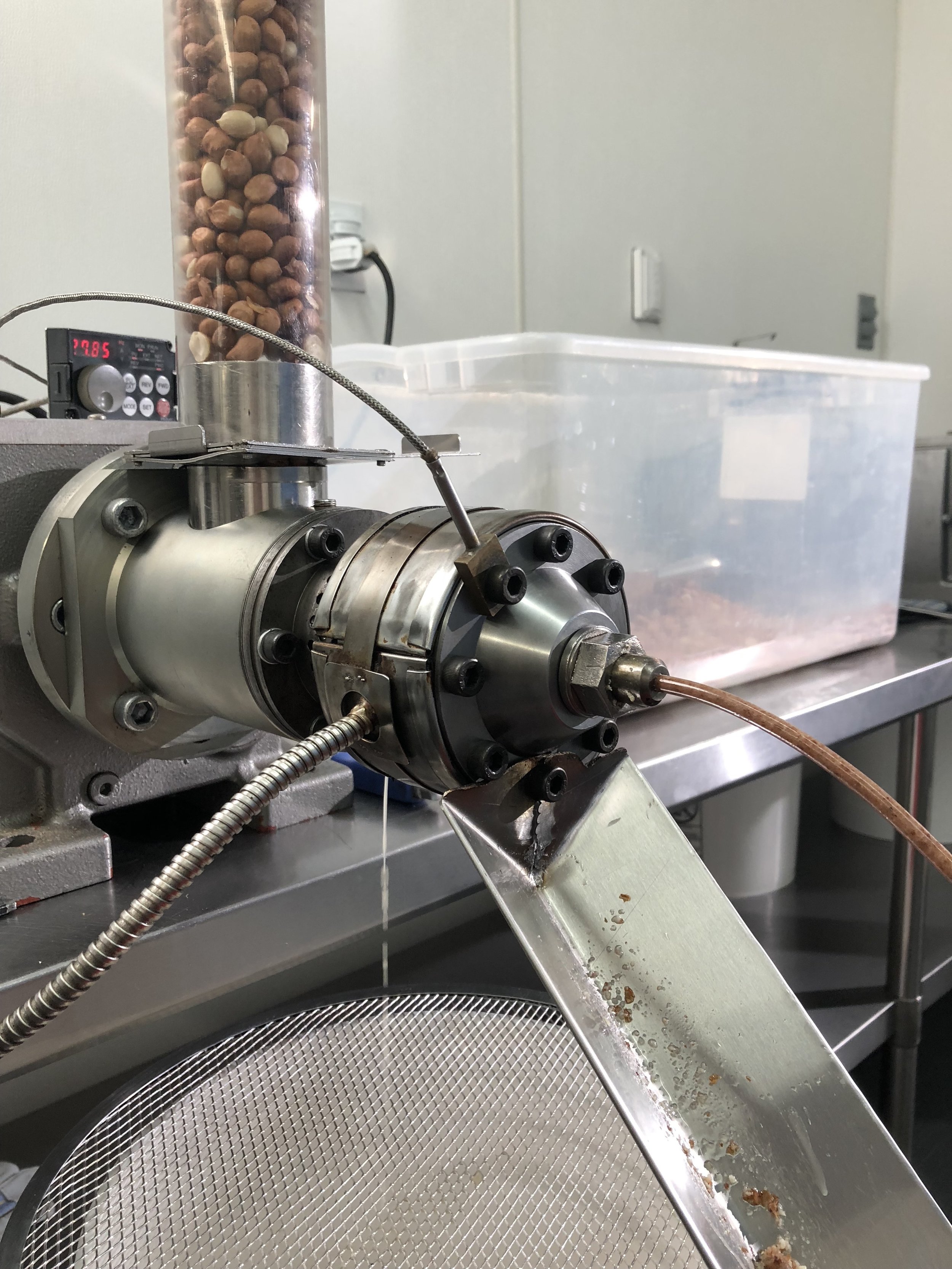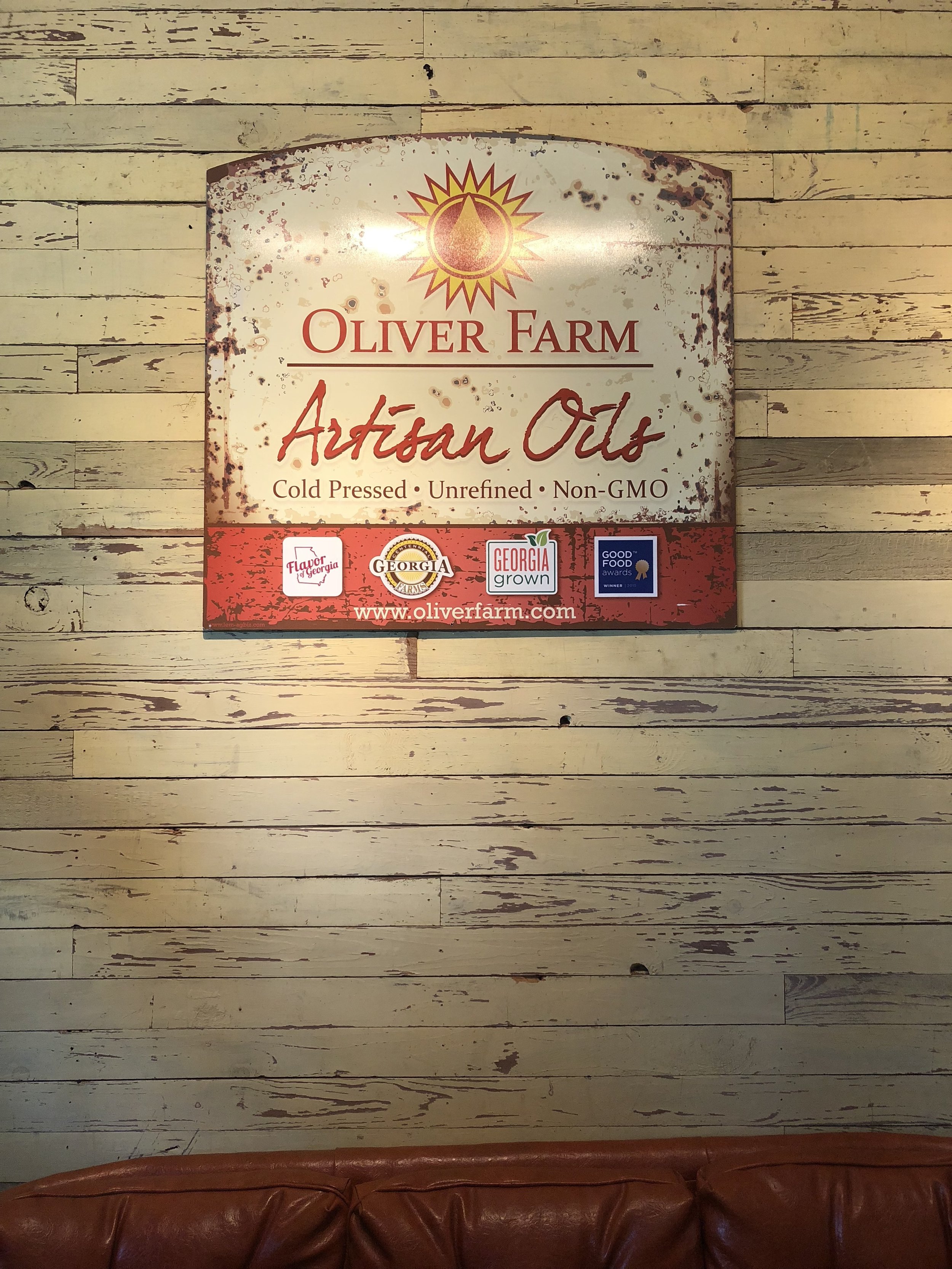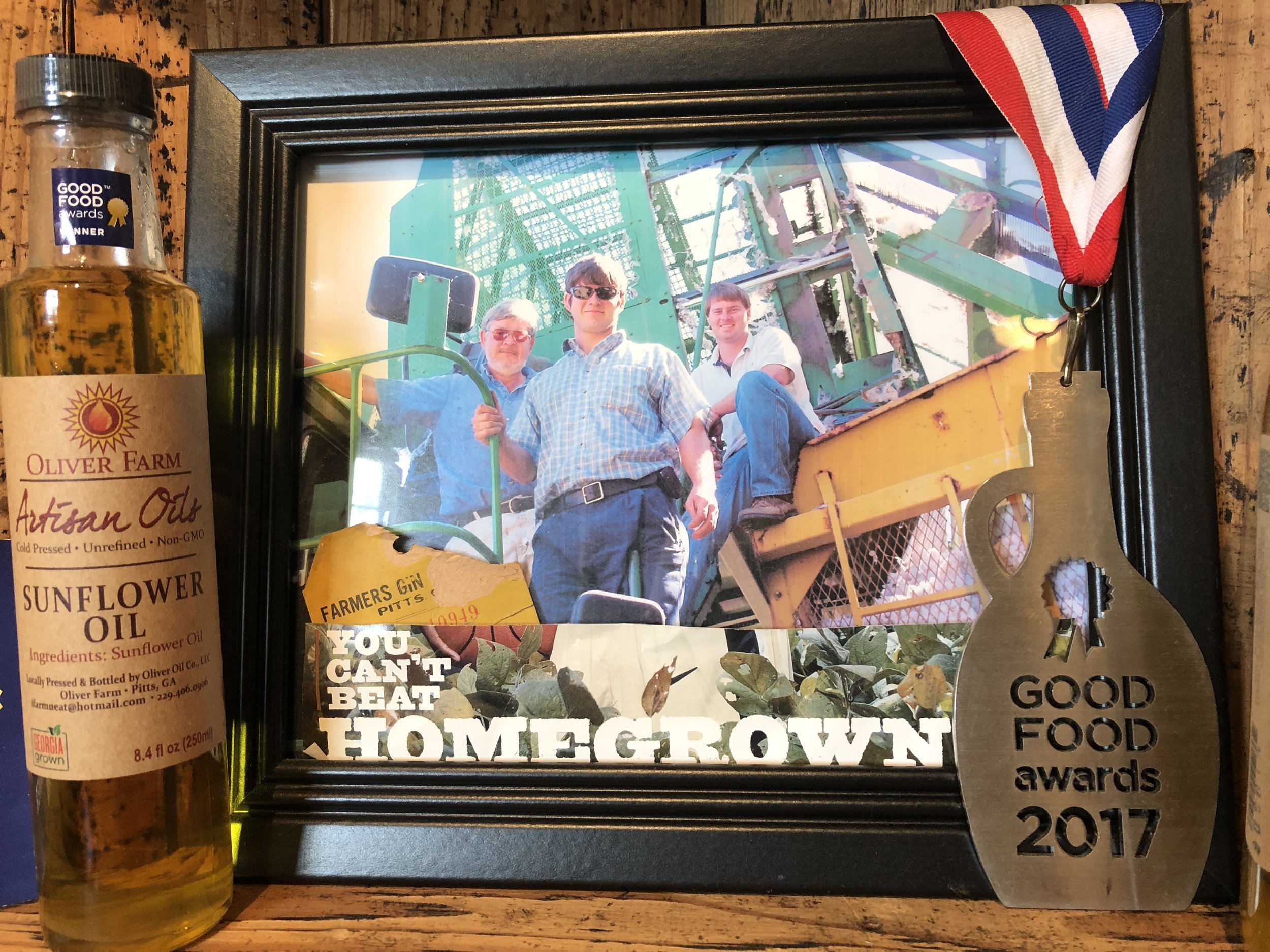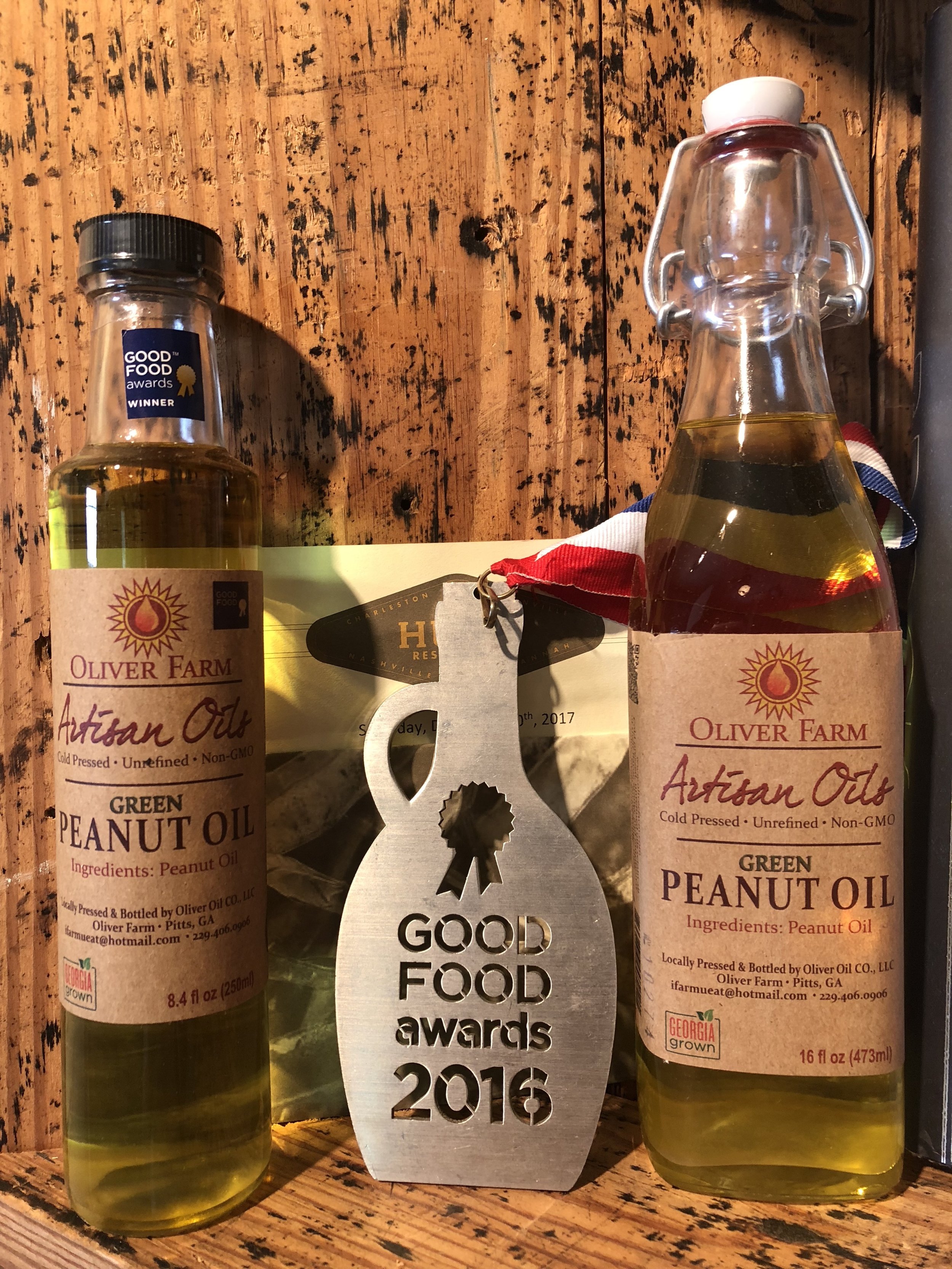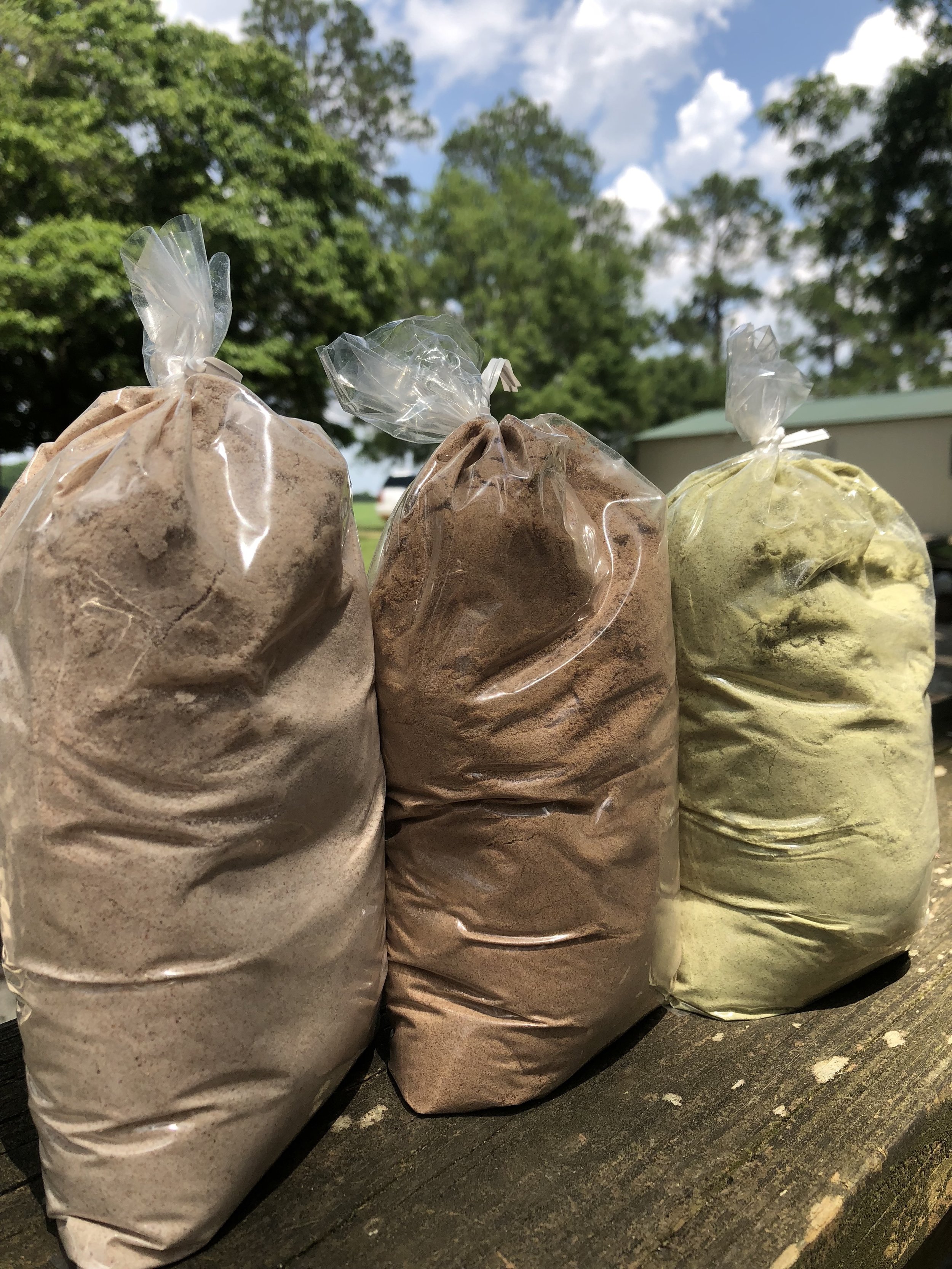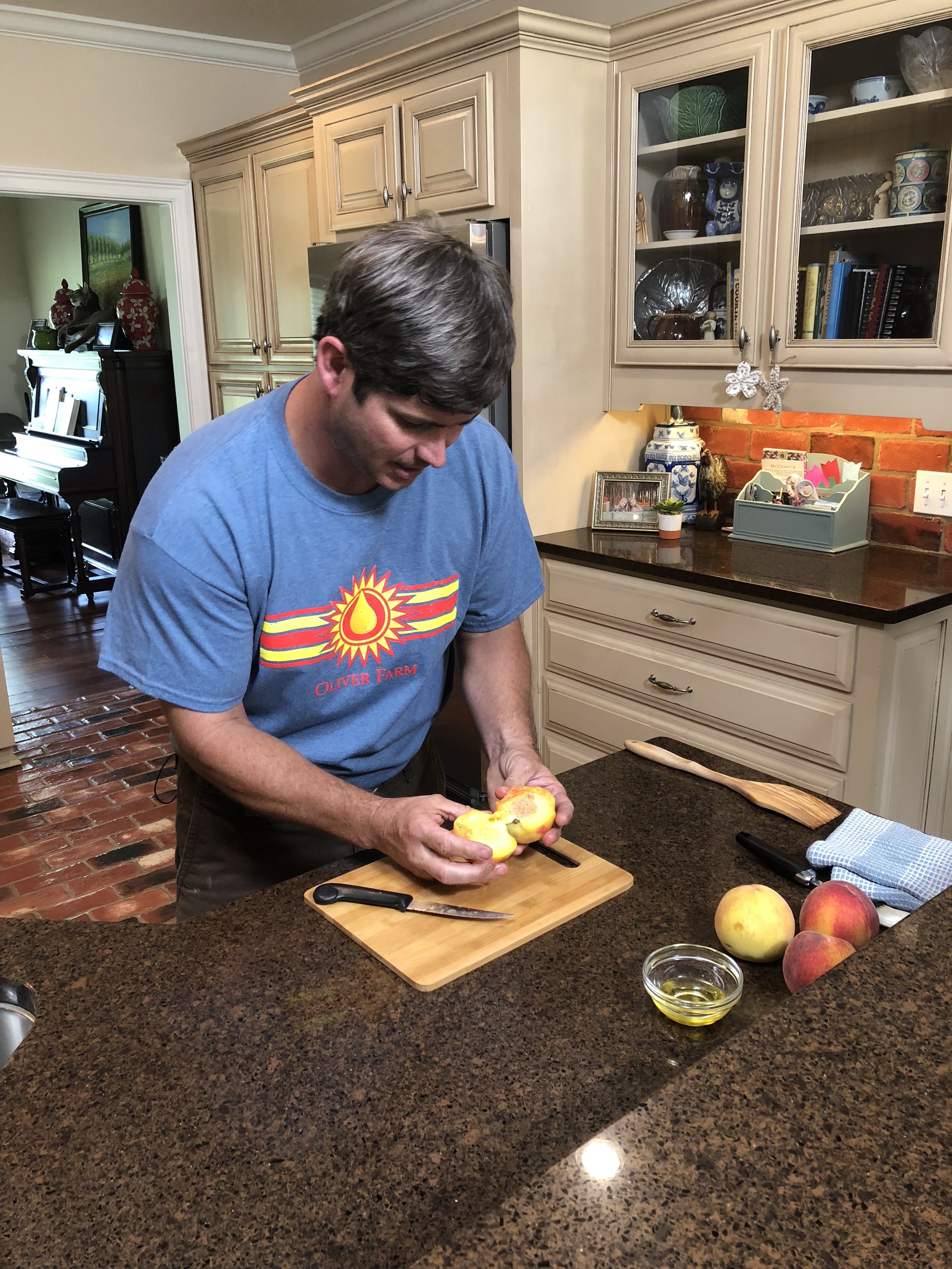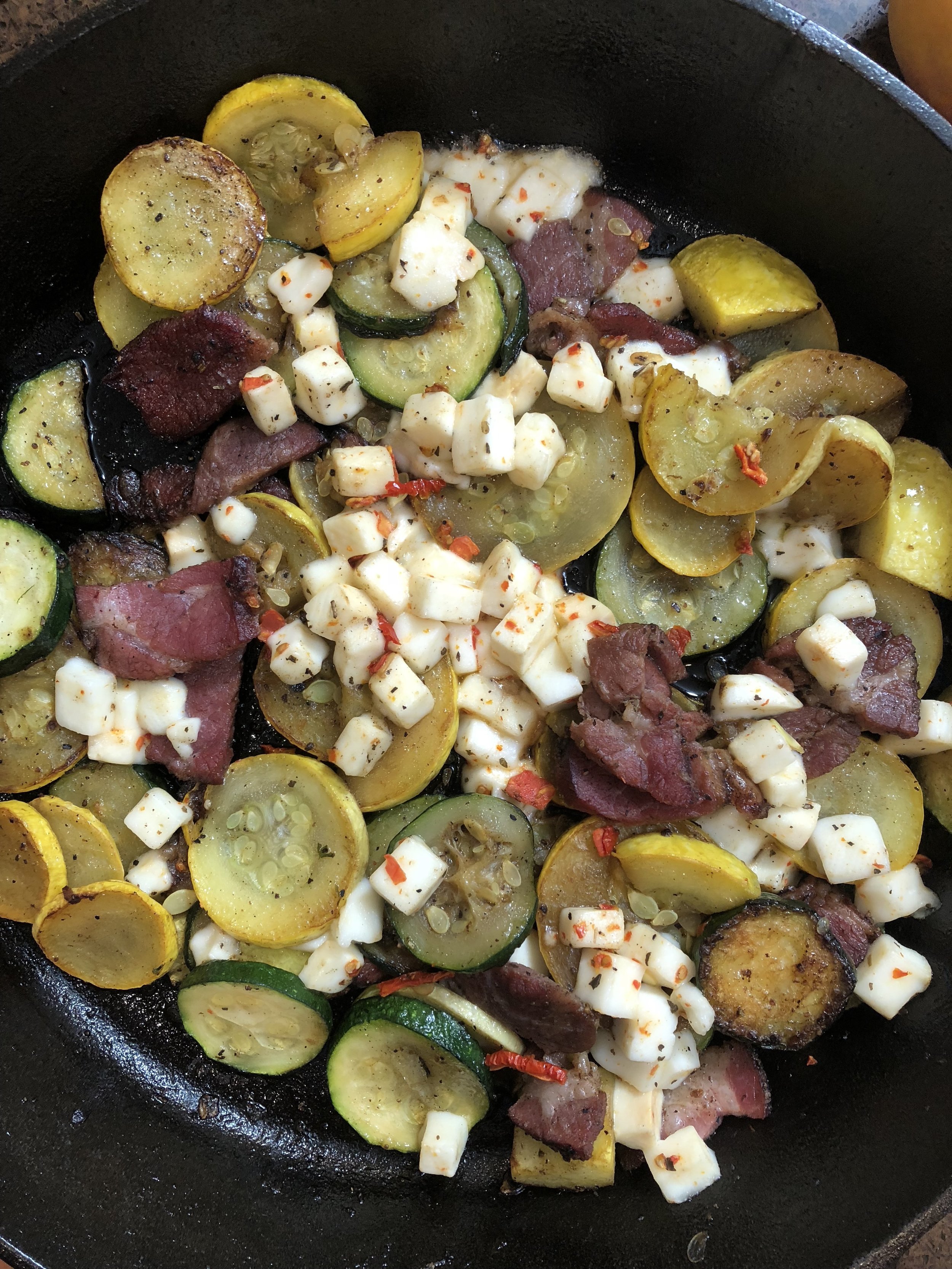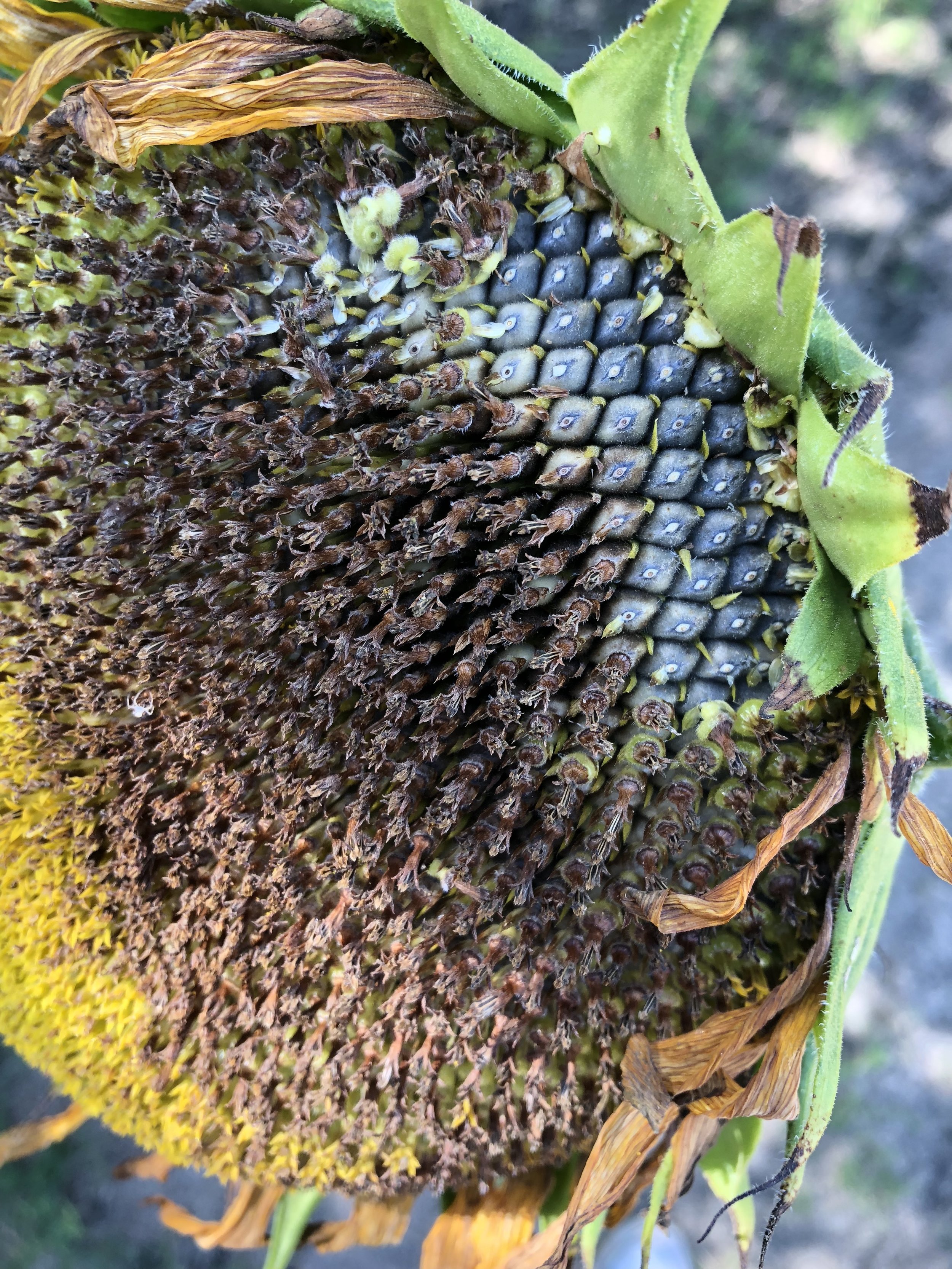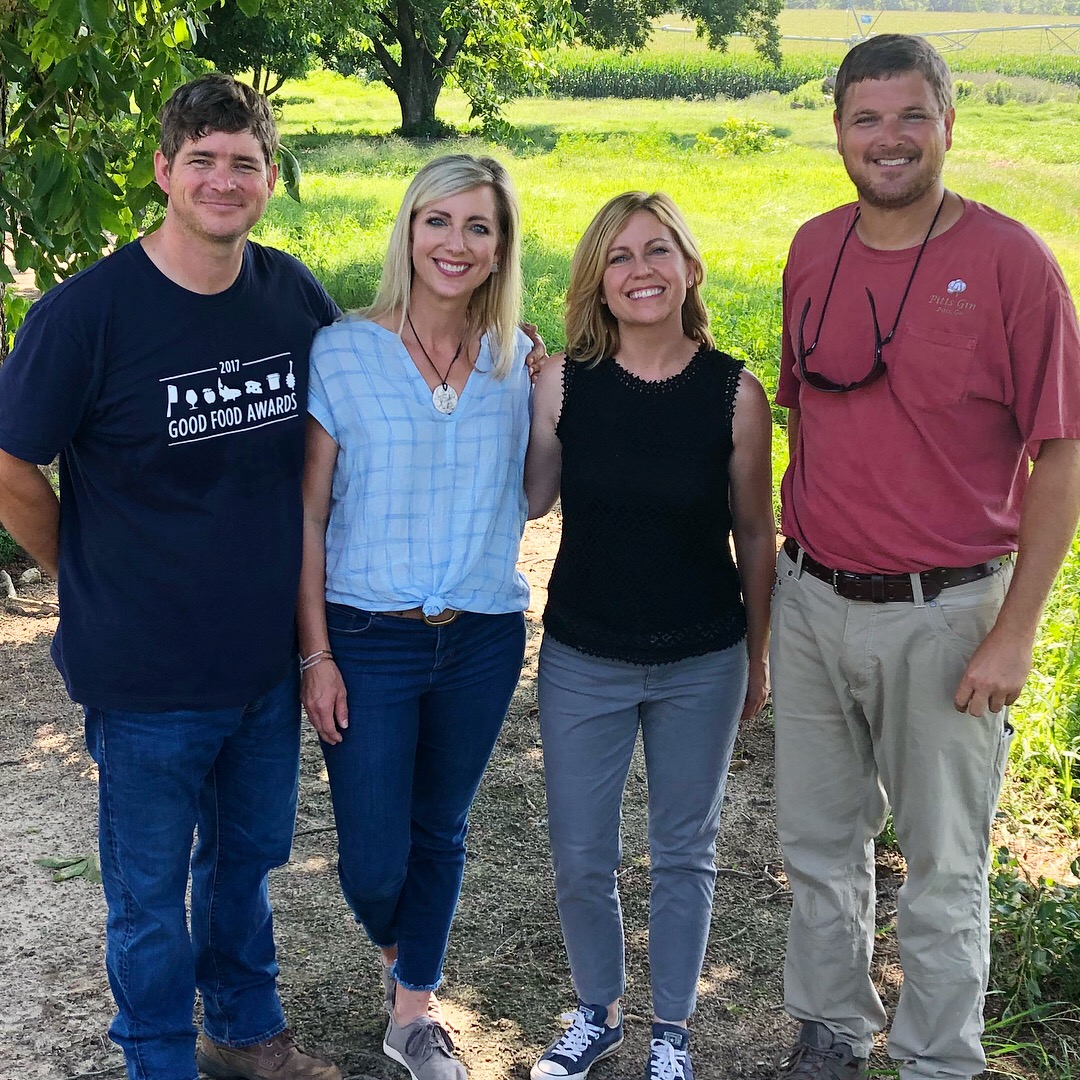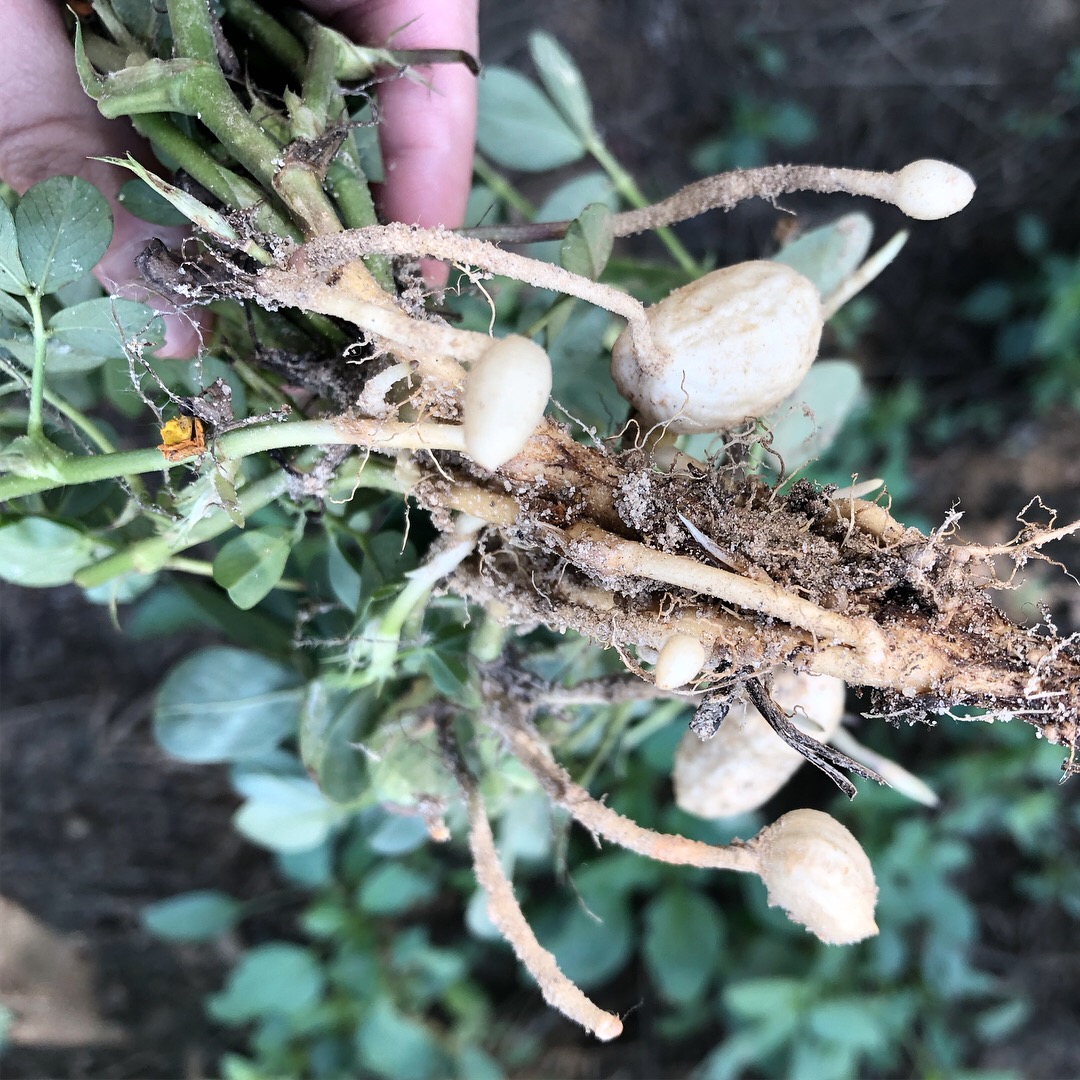Oliver Farms' cold-pressed, unfiltered oils capture the essence of Georgia-grown seeds and nuts
OLIVER FARM ARTISAN OILS | PITTS, GEORGIA
Okra seed oil is a revelation. It tastes just like okra, which kind of surprised me when I first tasted it. I don’t know what I was expecting, but the oil is truly the essence of okra. The oil from all those tiny seeds amplifies the fruit’s gentle, grassy flavor, making it more concentrated, more alive. All of Clay Oliver’s oils have that vibrant quality. They all taste like what they’re made from, but MORE. They have a deep intensity that only high-quality cold-pressed oils possess.
Clay grew up on his family’s farm raising cotton and other row crops like most of his neighbors. Then, the recession hit and he began looking for new revenue opportunities, thinking that maybe he could jump on the biodiesel bandwagon. He planted a field of sunflowers, harvested the seeds and pressed them to extract the oil. You’ll have to watch the episode to hear the full story, but that initial interest in biodiesel led to Clay deciding that there was no way he’d let that oil become fuel. It was too delicious. And so began his culinary journey, which has led him across the country, winning awards from the Good Food Foundation and Garden & Gun, hanging out with Alice Waters and becoming connected with some of the country’s most respected chefs.
Clay and his wife Valerie are the force behind this artisan company, which is run from a small building on the family farm. They grow and harvest their own sunflower seeds and source peanuts, pecans, sesame seeds, okra seeds and other raw ingredients from other farmers. All they do is take the raw seeds or nuts and run them through a screw press, capturing the oil and putting it in a bottle. That’s it. Cold-pressed and unrefined oils retain all the beneficial nutrients found in the whole seed or nut. Adding heat to the extraction process could produce more oil, but what’s sacrificed is flavor and nutrition, so that’s out of the question for Clay.
As the seeds and nuts are pressed, the byproduct of the process is all of the solid matter, which is expelled as long, skinny tubes. Rather than tossing the byproduct into a landfill or feeding it to livestock, Clay and Valerie grind it into gluten-free flours. Yes. Pecan flour, pumpkin-seed flour, peanut flour … even sesame-seed flour. Clay’s recipe for pecan-flour brownies is below. Bake a batch for yourself and you’ll want to send him a thank you note.
